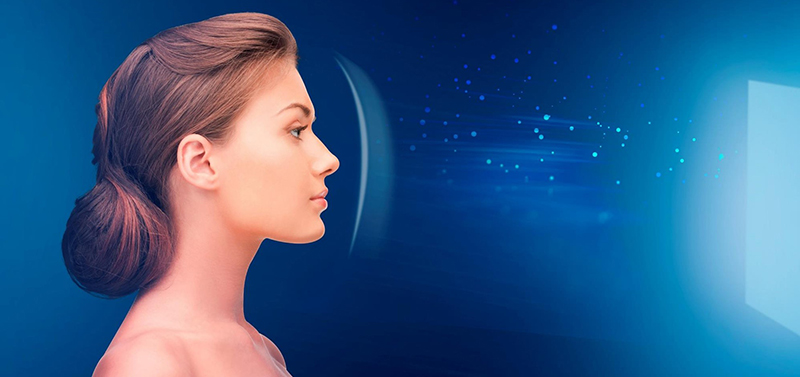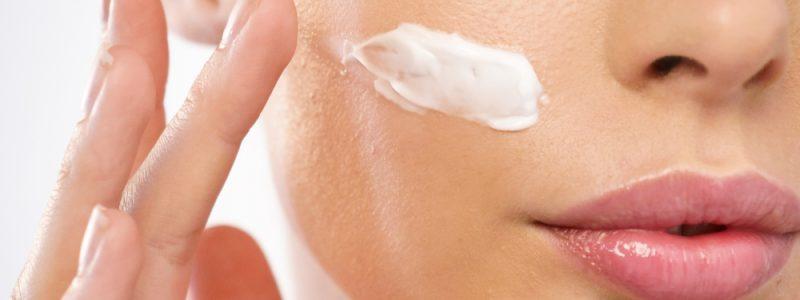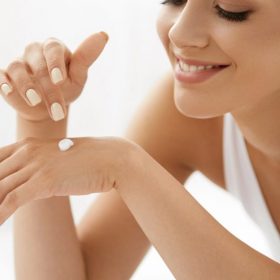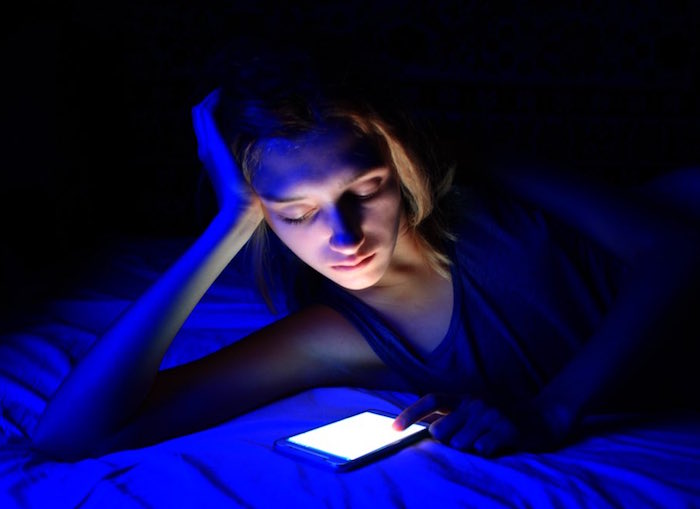Skincare
Your Skin demands Protection Against Blue Light Damage! Are you aware of it?
Even dermatologists warn the blue light from smartphones and laptops could be potentially aging our skin.
People today are either asleep or connected. Sad but true. Let’s face it, we’re on our devices more than ever! For most of us, ramped-up screen time from sheltering in the house has become either a necessity or a necessary evil…
And our skin may be facing the damages caused by it. Blue light from mobile phones and laptops may be disrupting some of the work you’ve put into caring for your skin. And stealing the shine from those skin-care products you got around to trying:/ There’s already plenty for us to be on edge about right now, and trust us, we don’t intend to add to that crazy list!
So before dropping off the grid into permanent isolation, know this: Having an awareness about blue light is vital — but with the right products, the negative effects of it are also preventable. We do believe that there is a tiny place for blue-light protection within skin-care routines, especially if you spend a lot of time in front of digital devices.
The Silent Agers of our generation? Who Us?
Do you even know what blue light is and how much are we exposed to it?

A 2019 report suggests that most people, on average, spend three hours and 15 minutes on the phone a day. Millennials check their phones an average of 150 times a day. With the top 20 percent of smartphone users having daily screen time over four and a half hours, we’re getting significantly more blue light exposure than we used to from the sun alone. I swear on my mobile, may its battery die if I am wrong.
Our new normal of endless show streaming and Zoom meetings now requires consideration of blue light, also called High Energy Visible Light (HEV). It’s just a little bit shorter in wavelength as compared to ultraviolet light (UV), which we know causes skin cancer and skin aging. That being said let us discuss…
The problems with blue light
- Spending a few hours in front of a computer as part of your work exposes you to the same amount of energy as 20 minutes in the midday sun.
- Blue light is not known to cause skin cancer. But there is a science to indicate that it potentially contributes to skin aging by generating reactive oxygen species (ROS) in the skin.
- It has the ability to penetrate deeper into the skin compared with both UVA and UVB light.
- Well, we all wish to become like a caterpillar. Eat a lot, sleep a lot and wake up beautiful. After all, a night of good sleep is the best medicine they say. But this Blue light compromises our beauty sleep by way of disrupting our natural circadian rhythm. You might have observed yourself, if exposed to significant amounts of blue light at night, you may find it more difficult to fall asleep (hands up who watched Netflix and scrolled through their phone in bed last night). It’s because blue light affects the level of melatonin, our sleep hormone.
- Some factors also indicate that exposure to blue light at night can throw skin’s natural circadian rhythm ‘out-of-sync’, causing skin cells to continue to ‘think’ it is daytime. This impacts their natural nighttime repair process. This can lead to visible signs of aging, and even dark under-eye circles! Oops! We didn’t sign up for this. Or did we?
We’re all so used to blue light because we see it all day. Its sheer familiarity makes it seem harmless. Isn’t it?
Another side of the coin
- Many people argue that blue light isn’t all bad. They say that Blue light is good for your brain. It improves mood, energy, and alertness, and enriches cognitive function.
- Many skincare pros recommend Acne sufferers use blue light as a skin treatment.
How to protect your skin from blue light damage

Shed off your worries and pay attention: The best skincare ingredients and ways are listed below to protect you from blue light damages
Certainly, we need to take an indoor and outdoor approach given that both sunlight and our digital devices emit blue light. Before you tweak your skincare regime (which we’ll get on to) do this…

1. Shield your skin with a screen protector.
Let’s keep #nofilter only to pictures and conversations.
Do consider getting a special filter to lay on the screen of your phone to filter out many of the blue light rays. I have one on my phone. It’s a convenient, effective, and low-cost way to prevent premature skin aging.
2. Wear liquid foundation makeup.
Not only does foundation (even if it doesn’t indicate it has sunscreen) protect from the sun but new research indicates that wearing makeup helps protect against blue light, too. This is from iron oxides. They are used in most foundation makeups. Ingredients to look for are zinc oxide and titanium dioxide.
3. Antioxidants are an absolute must!
The best skincare ingredients to prevent blue light damage from your phone are antioxidants. They are members of a complicated biological system that defend the body against increased production of free radicals caused by blue light and also from the air we breathe (oxygen), UV sunlight, cigarette smoke, stress, and smog.
While we’d recommend leaving your cleansing until after a catch-up TV binge – should you also be partial to a bit of screen time in bed. One doesn’t need to wear broad-spectrum shields at all hours. Topically applied antioxidants will necessarily create an antioxidant ‘depot’ in our skin, so the antioxidants will still be doing great in our skin after we have washed our face in the evening.
4. Eat a diet rich in antioxidants.

The following foods will fuel your body from the inside out..have a look.
- avocados
- berries
- sweet potatoes
- broccoli
- grapes
- citrus fruits
- spinach
- carrots
- cantaloupe
- Tomatoes
Wise Words for wise people
 In summary, technology is intended to make our lives easier, but it can surely have side effects on the skin. Cell phones have brought us “tech neck” which are the horizontal folds across the neck from looking down at our phones. Laptops created “toasted skin syndrome” which is a burning reaction that results in discoloration of the skin from the heat of a laptop resting on the thighs. Now, blue light is given off from tech devices, screens, and even LED lamps and is affecting the skin badly.
In summary, technology is intended to make our lives easier, but it can surely have side effects on the skin. Cell phones have brought us “tech neck” which are the horizontal folds across the neck from looking down at our phones. Laptops created “toasted skin syndrome” which is a burning reaction that results in discoloration of the skin from the heat of a laptop resting on the thighs. Now, blue light is given off from tech devices, screens, and even LED lamps and is affecting the skin badly.
It’s time you know that so much has been happening under your nose(haha). But thank god and science, with the right skincare ingredients, you can keep the damage under control.
Moral: Don’t underestimate the power of everyday products like sunscreen and serums.

